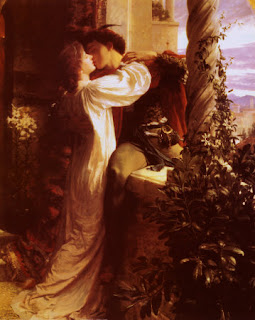Thursday, November 13, 2008
Favourite work of the composer...
http://www.youtube.com/watch?v=Mi_efzYcXGI
http://www.youtube.com/watch?v=O3CjBLrazE8
One of my favourite section in the piece is the Dance of the Merlitons.
http://www.youtube.com/watch?v=ulPYzhdpStQ
Why I liked the piece?
I like this piece "Dance of the Merlitons" as this piece sounds cheerful, cheeky and playful. The melody is flowing, constantly moving from the major key to the minor key, and later back to major key again. This short segment of the Nutcracker Suite is in the ternary form. Hence it is in A-B-A. I like the main melody in A, where the melody of the flutes is playful and cheeky. There are use of syncopations and the accents played be the flutes also brings out the melody more. While the flutes plays the main melody at A, the strings plays the harmony. Bowing technique was used in the upper strings whereas plucking technique, also known as pizzicato, is used in the lower strings. There is also a short part where the basoon plays a solo, it sounded like a countermelody to me. At B, the brasses are introduced. The continuous crecendos and decrecendos carried out helps build the effect of rising and falling. The piece reverts back to A and ends of in the major key. Overall, the piece was smooth-flowing and the melody attracted me. Hence, I like this piece composed by Tchaikovsky.
His Last Years...

Excerpt from the 4th movement of Tchaikovsky's Symphony No. 6 in B minor, Pathétique, Op. 74
Some scholars believed that he might have committed suicide, either by drinking contaminated water deliberately or by taking arsenic as he died of chloera after drinking a cup of unboiled water.
Fatalism...

The retreat of Moscow inspired by Tchaikovsky's 1812 Overture
By 1884 Tchaikovsky felt the need to settle down, and found himself a country house near Klin, outside Moscow. He renewed one acquaintance, with Balakirev(who prompted him to compose the Byronic Manfred Symphony), but lost another when, in October 1890, his substitute mother-figure Madame von Meck abruptly discontinued their 14-year relationship.
Tchaikovsky's Marriage Life...

Tchaikovsky and his wife Antonina Milyukova
Tchaikovsky had evidently hoped that marriage would bring "normality" to his life, but found himself unacle to reconcile his wife's physical demands with his homosexuality. A n attempt at reconciliation brought him to the brink of suicide, and within weeks of the wedding he fled to the safety of his brother's house in St Peterburg. Tchaikovsky never saw his wife again, although they were never divorced. In 1896, 3 years after his death, she was declared insane and spent the rest of her life in an asylum.

Nadezhda von Meck
Music of the stage...
In 1874 Tchaikovsky's confidence recieved another severe dent when Nikolay Rubinstein contemptuously rejected his First Piano Concerto as "worthless and unplayable". Tchaikovsky rightly ignored the criticism, and refused to alter the score. After Hans von Bulow gave its premiere in Boston, USA, the following year with great success, Rubinstein was forced to admit his mistake. Meanwhile, Tchaikovsky- who spent as much time as possible travellin outside Russia- saw Bizet's Carmen in Paris, and Wagner's Ring at the opening of the Bayreuth Festival Opera, Under these tewin influeances he composed his tone-poem Francesca da Rimini (1876), based on the famous episode in Dante's Inferno, and, in complete contrast, the classically poised Rocco Variations for cello and orchestra.
Above: The Swan Princess by M.A. Vrubel(1867-1910), inspired by the herione of Swan Lake
Above: The Nutcracker
The Early Life of Tchaikovsky...
 Extreme left: Pyotr Tchaikovsky. Seated left to right are: composer's mother Alexandra Andreyevna, his sister Alexandra, brother Ippolit, and father Ilya Petrovich; standing are: sister Zinaida and brother Nikolai. From the collection of the Tchaikovsky House-Museum at Klin.
Extreme left: Pyotr Tchaikovsky. Seated left to right are: composer's mother Alexandra Andreyevna, his sister Alexandra, brother Ippolit, and father Ilya Petrovich; standing are: sister Zinaida and brother Nikolai. From the collection of the Tchaikovsky House-Museum at Klin. Tchaikovsky was the son of a mining engineer, and was born near the Urals. From his delicate, epileptic, French mother he inherited his hypersensitive nature and a tendancy to hypochondria. When he was 8, the family moved to St Petersburg, where Tchaikovsky enrolled in the junior department of the School of Jurisprudence, a training-ground for civil service. By this time, he had aquired twin younger brothers, Anatoly and Modest. He was exceptionally close to his mother, and her shocking death in cholera epidemic when Tchaikovsky was 14 was a trauma from which he never really recovered.

Nikolay Rubinstein(1835-81)
Tchaikovsky graduated from School of Jurisprudence in 1859, but found life in civil service uncongenial. When a new music conservatory opened in St Petersburg in 1862, he enrolled as a student. He graduated in 1866, and found a job as a harmony teacher at the Moscow Conservatory, which had just been established by his mentor, the pianist and the composer Nikolay Rubinstein(1835-81). The successful performance of an early overture in March 1866 encouraged him to start work on a symphony, entitled Winter Daydreams, which was performed under Rubinstein's baton in 1868. Modelled on Mendelssohn's Italian and Scottish Symphonies, it uses melodies influenced by Russian folk tunes.
Wednesday, November 12, 2008
About "The Mighty Handful"...
 From left to right: A female singer, Modest Petrovich Mussorgsky, Nikolay Rimsky-Korsakov, Mily Balakirev, Cesar Cui and Alexander Borodin
From left to right: A female singer, Modest Petrovich Mussorgsky, Nikolay Rimsky-Korsakov, Mily Balakirev, Cesar Cui and Alexander Borodin
This curious crowd of drinkers, who were largely amatuer composers, was given its nickname("moguchaya kuchka") by the critic Vladimir Stasov in 1867. Thier self-styled leader was Balakirev, while Borodin worked as a chemist, Rimsky-Korsakov was a naval officer and Cesar Cui was a military engineer, and the most gifted, Mussorgsky, was a civil servant whom the rest regarded with a certain contempt. Nevertheless, their influence on Russian music in the late 19th century was immerse.

